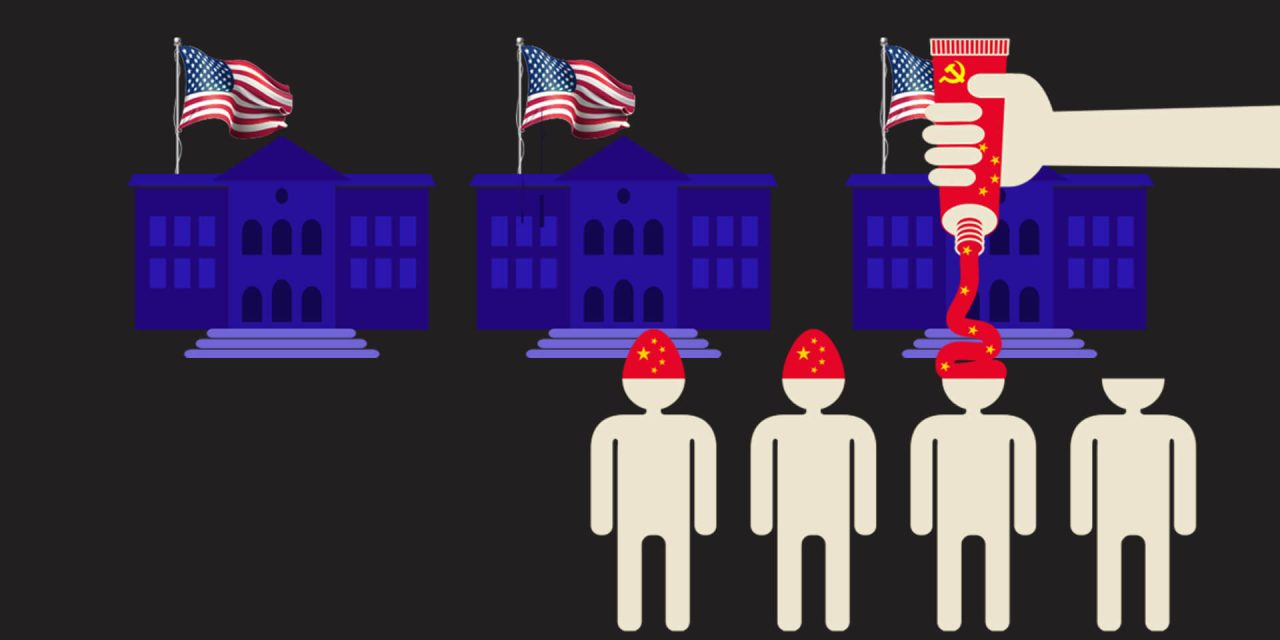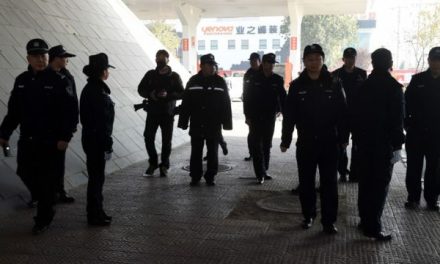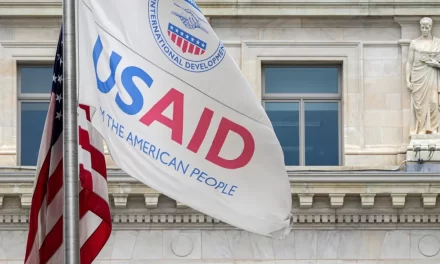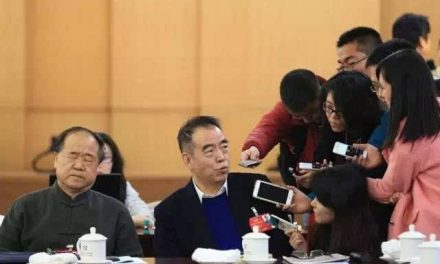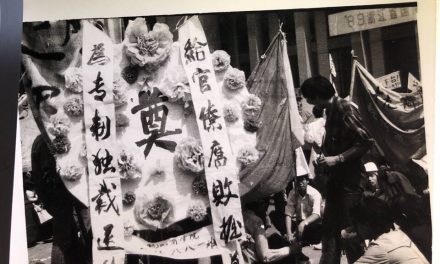By Jeanette Tong and Evan Osborne
Late last year, Xi Jinping announced a plan to bring 50,000 American youths to visit China over the next five years. Subsequently, in just one month, January 2024, at least five American student groups completed trips there. They included graduate students from Columbia, table-tennis players from Virginia, undergraduates from California Student University-Long Beach, high-school students from Muscatine, Iowa, and even primary-school students from Utah.
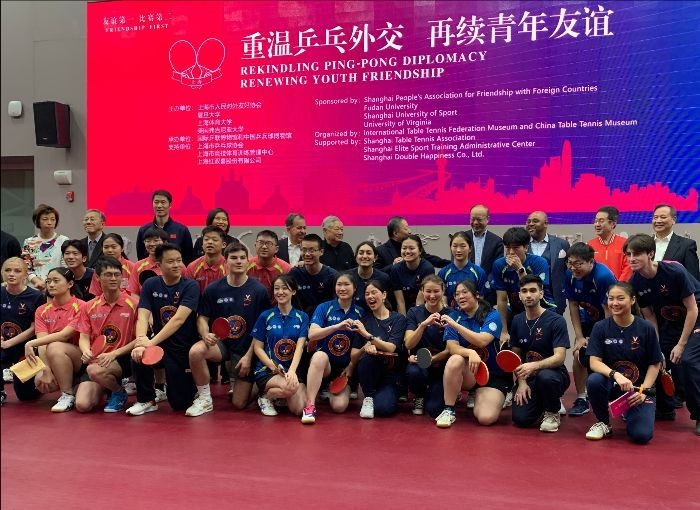
Many might say that such free trips allow students to broaden their horizons by experiencing the culture of another country firsthand, as would occur if they went to, say, France or Japan. However, this reasoning assumes a normal study-abroad experience, free from darker motives.
Yet what is the purpose behind the CCP arranging these student visits? CGTN — China Global Television Network, China’s state media, provides a direct answer:
“The exchange program aims to create so-called ‘citizen ambassadors’ who appreciate the need for cross-cultural understanding, and it’s hoped that the seeds of these friendships can one day help strengthen ties between the US and China.”
The main purpose of the Chinese government is clearly to cultivate attitudes favorable to CCP China among young Americans.
Visit itineraries are all quite similar. Students on the one hand experience ancient Chinese culture and Chinese cuisine, and on the other high-tech enterprises like the Tesla factory and the National Gene Bank. They see modern metropolises and the CCP’s large-scale construction projects. They seem to encounter China’s rapid development, the goal being to validate the superiority of the country’s social system. But students are unable to access areas the CCP least wants the world to know about. As master of a police state, with nearly one billion cameras and other broader surveillance, the CCP silences or imprisons anyone criticizing it. In Xinjiang, over a million Uighurs are detained simply due to their religious beliefs. The CCP unilaterally tears apart solemn agreements as it dismantles democracy in Hong Kong. China’s rapid development relies on practices that deviate from WTO rules, employing unfair competitive tactics such as government subsidies and intellectual-property theft. This, along with nonexistent labor rights and weak pollution standards, is what has led to Chinese economic success globally. However, for the CCP, seeing what they want you to see is believing. And so the bulk of the country, the more than 900 million Chinese earning less than $300 per month and without medical coverage, are also rendered invisible.
The CCP also arranges for Chinese students to dutifully host American ones, fostering one-to-one bonding. These sincerely kind and warm-hearted Chinese students quickly establish often-genuine friendships with American students. To maintain contact after returning to the US, American students unsuspectingly download the notorious “WeChat” app. Some students are even invited to study and consider future work in China.
Repeating the rote rhetoric from CCP propaganda, Heidi Zhang, the director of the International Training Program at CSULB and of the Confucius Institute there, robotically expresses the program’s purpose: “The primary goal is to provide students with a global perspective, allowing them to gain insights beyond the confines of campus life and occasional exposure to biased (sic) news. Many students may not truly understand the reality of China or the diverse individuals living there. These students serve as potential ambassadors, akin to seeds that have been planted and can now grow. They have the opportunity to share their experiences in China with their siblings and friends, inspiring others to consider similar educational journeys.”
The CCP wants more such student visitors, with all accepting the CCP’s narrative, that Xi”s dream of China’s global dominance is harmless, its actions against the world order and democratic values and its extensive human-rights violations all benign. Any criticisms students might hear are due to biases held by certain Western politicians and media. The world should embrace China’s rise and the new order it would impose on the world.
This new strategy has been forged as Washington has actually become increasingly and properly alert to China’s nefarious influence. And so American youth in the country at large are now cultivated instead as Beijing’s supporters. At home, Xi emphasizes the importance of revolutionary education starting from a young age, focusing on both ideological and emotional cultivation to instill so-called “red genes” into the hearts and minds of Chinese children. Now, the CCP aims to expand its successful brainwashing techniques, already honed in some developing countries, to American soil, turning innocent American youths into unwitting mere tools for its authoritarian model.
And so more American youths are being sent to China for visits, admiring, under the guidance of well-intentioned American educators, the completely staged beauty of a supposedly harmonious society. Meanwhile, our school administrations and education authorities remain indifferent. And our children are ensnared by other manifestations of this broader effort via the political influence of TikTok and the surveillance potential of WeChat.
Institutions planning these trips need to know that they will not be visiting China, but CCP China, a place where one Orwellian party controls all. We strongly urge such institutions to provide pre-trip training about the following:
— the current status of and reasons behind the deterioration of US-China relations from the American perspective;
— the Chinese government’s purpose in sponsoring such trips;
— human-rights abuses, and economic coercion of weaker nations, by the CCP;
— its extensive surveillance of its citizens;
— the need to critically think about China, and to engage in meaningful discussions with the people they encounter;
— the security risks associated with WeChat, along with alternatives for communicating with new friends.
The values of democracy and freedom that America defends are now under comprehensive CCP attack. We must acknowledge the role American youth play in this scheme.
Jeanette Tong is a research fellow at Citizen Power Initiatives for China.
Evan Osborne, Ph.D., is a professor of economics at Wright State University and the author of “Reasonably Simple Economics: Why the World Works the Way it Does” and “The Rise of the Anti-Corporate Movement: Corporations and the People Who Hate Them.”

